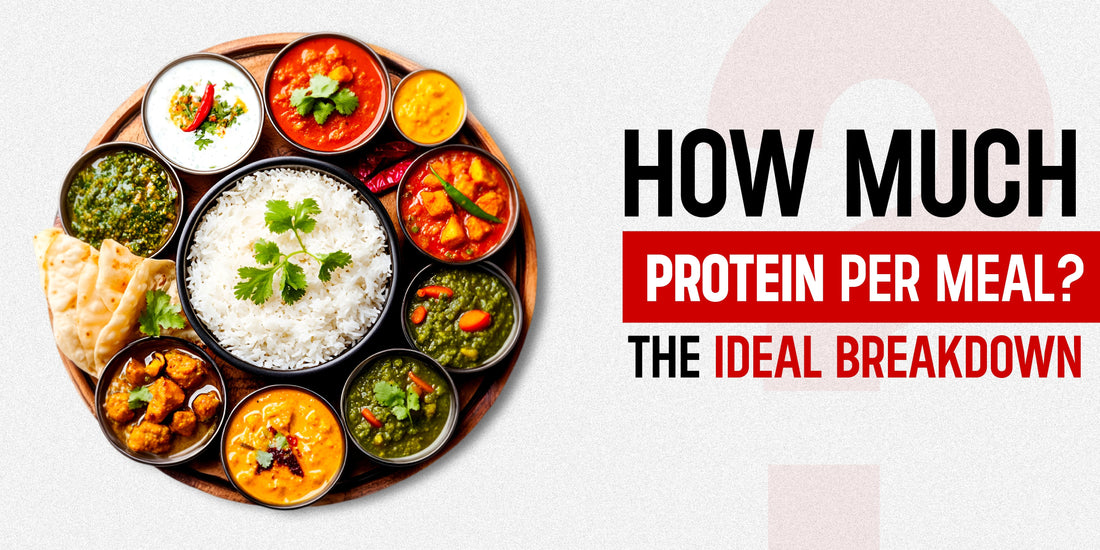
How Much Protein Per Meal? The Ideal Breakdown
byProtein intake is crucial for muscle growth, recovery, and overall health, but how much protein should you consume per meal? While daily protein goals are important, the way you distribute your intake throughout the day can significantly impact muscle protein synthesis (MPS) and performance.
In this blog, we’ll break down the ideal protein intake per meal, the science behind it, and how you can optimize your nutrition for better results.
The Science Behind Protein Distribution
Your body can only utilize a certain amount of protein at a time for muscle repair and growth. According to studies, ingesting 20-40g of protein per meal increases muscle protein synthesis, and anything more than that
Ideal Protein Intake Per Meal
1. General Guidelines for Protein Per Meal
- General fitness and maintenance: 20-30g of protein every meal.
- Muscle Gain & Strength Training: 30-40g of protein per meal
- Endurance Athletes: 25-35g of protein per meal
- Weight Loss & Satiety: 25-35g of protein per meal to promote fullness
2. Protein Timing & Meal Breakdown
Distributing protein evenly across your meals ensures a steady supply of amino acids for muscle repair and growth. Here’s an optimal breakdown:
|
Meal |
Ideal Protein Intake |
|
Breakfast |
25-35g |
|
Lunch |
25-35g |
|
Pre-Workout |
20-30g |
|
Post-Workout |
25-40g |
|
Dinner |
25-35g |
|
Bedtime Snack (Optional) |
20-30g (Casein for slow digestion) |
Best Protein Sources for Each Meal
- Breakfast: Eggs, Greek yogurt, protein smoothies, cottage cheese, Bolt Nutrition Whey Protein
- Lunch: chicken Grilled , lean beef, tofu, quinoa, and lentils.
- Pre-Workout: Protein bars, nuts with protein, Bolt Nutrition Protein
- Post-Workout: Whey protein, lean meats, fish, egg whites, Bolt Nutrition Recovery Blend
- Dinner: Salmon, turkey, plant-based protein sources
- Bedtime Snack: Casein protein, cottage cheese, nuts, Bolt Nutrition Casein Blend
FAQ – Protein Intake Per Meal
1. What happens if I consume too much protein in a single meal?
Your body will use what it needs, and the excess may be stored as fat or used for energy. Spreading protein intake across multiple meals ensures better muscle growth and digestion.
2. Can I consume all of my protein in one meal?
While you can consume all your protein at once, it’s not ideal. Muscle protein synthesis is maximized when protein intake is spread evenly throughout the day.
3. Should I eat protein before bed?
Yes! A slow-digesting protein like casein before bed can promote overnight muscle repair and recovery.
4. How much protein should I eat post-workout?
A post-workout meal should contain 25-40g of protein to optimize muscle recovery and growth.
5. Do protein supplements help meet protein intake goals?
Absolutely! If you struggle to get enough protein from food alone, Bolt Nutrition’s high-quality protein supplements provide an easy and effective way to meet your daily needs.
Conclusion
Optimizing protein intake per meal can significantly impact muscle growth, fat loss, and overall performance. To get the best effects, aim for 20-40g of protein per meal, distribute it evenly, and use high-quality sources.










